Exploring Egypt's Hidden Wonders: A Beginner's Guide to Scuba Diving in The Red Sea
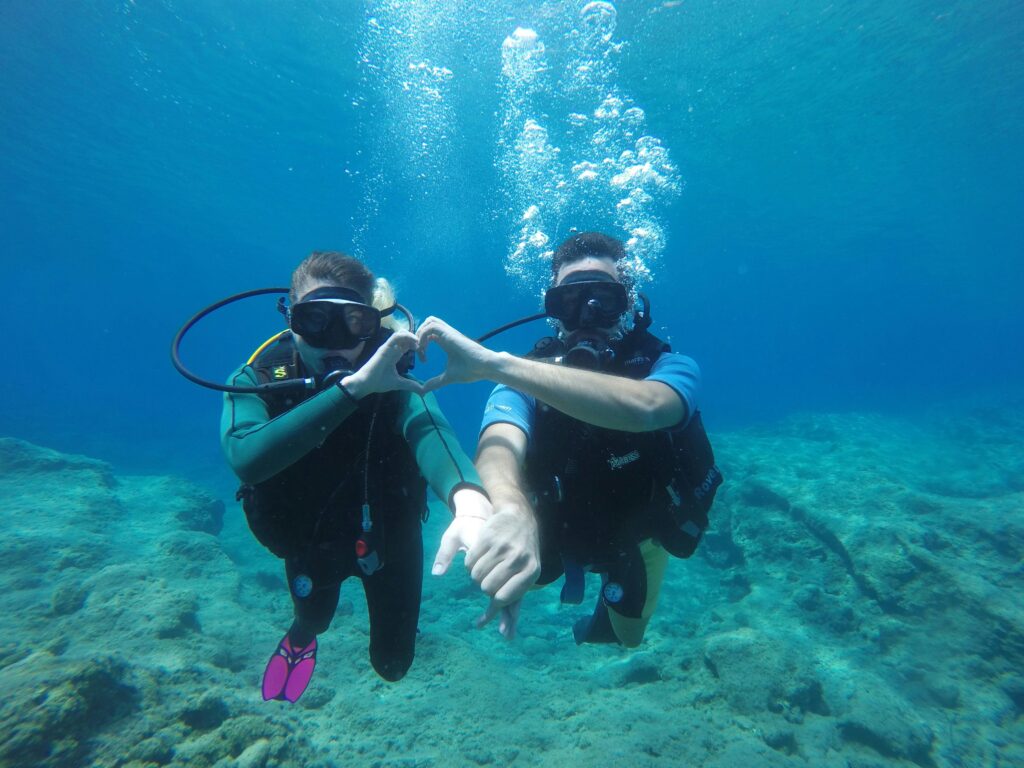
Introduction
Overview of Scuba Diving
Scuba diving is more than just an adventure; it's an immersive experience that allows you to escape into a breathtaking underwater world. The word "scuba" stands for Self-Contained Underwater Breathing Apparatus, which is a fancy way of saying that with the right gear, you'll be able to breathe under the sea.
Imagine swimming alongside vibrant coral reefs, colourful fish darting by, and perhaps even encountering gentle sea turtles. Scuba diving opens the door to a universe teeming with life, offering a sense of freedom that few other activities can match.
For those eager to dive into this intriguing pastime, equipment is essential. Aside from a wetsuit and buoyancy control devices, you will also need tanks and regulators to breathe underwater. Each diving experience can lead to new discoveries, making it a perfect escape from everyday life.
Importance of Exploring Egypt's Red Sea
Among the world's top diving destinations, Egypt's Red Sea shines brightly. Why?
- Rich Marine Life: Home to diverse ecosystems, the Red Sea is a biodiversity sanctuary.
- Stunning Coral Reefs: The vibrant coral gardens here entice divers of all levels.
- Historical Dive Sites: From shipwrecks to ancient ruins, each dive tells a story.
Exploring the Red Sea allows divers not only to witness spectacular underwater sights but also to deepen their appreciation for marine conservation. With its warm waters and astonishing visibility, this destination is truly a diver’s paradise!

Getting Started with Scuba Diving
Equipment You Need
As you take the plunge into scuba diving, the right equipment can make all the difference in your experience. Imagine gearing up for your first dive, excitement bubbling as you strap on your gear. Here’s a list of essential equipment you’ll need:
- Wetsuit: Protects you from cold water and marine organisms.
- Mask and Snorkel: Essential for underwater vision and breathing at the surface.
- BC (Buoyancy Control Device): Helps you control your buoyancy underwater.
- Regulator: Converts high-pressure air in your tank to breathable air.
- Tank: Holds the air you’ll breathe, usually filled with compressed air.
- Fins: Useful for efficient swimming and manoeuvrability.
While some divers prefer to rent equipment, owning your gear provides familiarity and comfort. Many dive centres offer rental services, which can be great for beginners trying out the sport.
Finding the Right Dive Center
Choosing the right dive centre is crucial for a safe and enjoyable experience. Think of it as selecting your guide to the underwater kingdom. Look for a centre that:
- Is PADI certified: This ensures they meet international safety standards.
- Offers proper training: Instructors should be qualified and experienced.
- Has good reviews: Check platforms like TripAdvisor for feedback from previous divers.
Remember, your dive centre can significantly impact your adventure, so don’t hesitate to visit, ask questions, and ensure you feel comfortable with their services. Happy diving!

Top Dive Sites in the Red Sea
Shaab El Erg
Located just a short boat ride from the bustling resort town of Hurghada, Shaab El Erg is a must-visit dive site that enchants divers with its natural beauty. Picture yourself descending into crystal-clear waters, surrounded by lively marine life and teeming coral formations. It's truly a magical experience! What makes Shaab El Erg so special?
- Dolphin Encounters: This site is famous for resident spinner dolphins. You may be lucky enough to swim alongside them, creating unforgettable memories.
- Vibrant Coral Gardens: The rich biodiversity here boasts stunning coral reefs that appear illuminated beneath the sun’s rays.
- Gentle Currents: Ideal for beginners yet still engaging for experienced divers, the currents allow ample opportunity to explore the area without much strain.
Thistlegorm Wreck
For those seeking a more adventurous dive, the Thistlegorm wreck awaits. This British cargo ship, sunk during World War II, lies at a depth of about 30 metres and has become one of the most famous dive spots in the world. Here’s what you can look forward to:
- Historical Dive: Explore the life of the ship, with its cargo of motorbikes, trucks, and ammunition telling a story of resilience.
- Thriving Marine Life: The wreck has transformed into an artificial reef, attracting diverse fish species and making it a vivid underwater habitat.
- Deep Dive Thrill: This site requires a bit more experience, adding an exhilarating element to your diving repertoire.
Both Shaab El Erg and the Thistlegorm wreck offer unique perspectives on the underwater world of the Red Sea, promising memories that will last a lifetime!
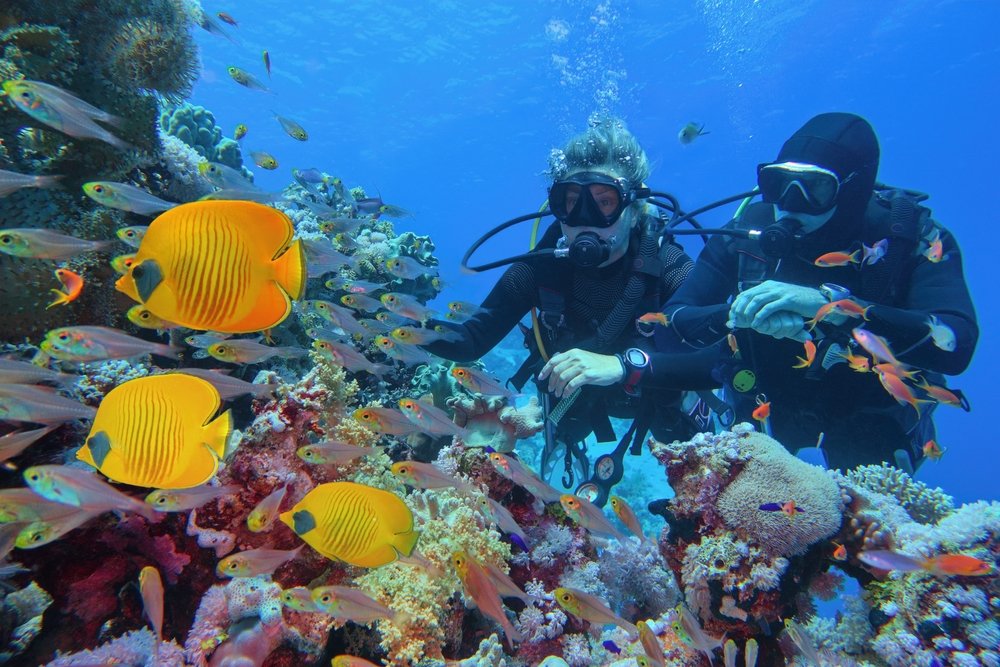
Marine Life in the Red Sea
Coral Reefs
As you explore the depths of the Red Sea, you'll quickly discover that its coral reefs are among the most stunning natural wonders on the planet. These underwater gardens are not just visually captivating; they play a vital role in marine ecosystems.
- Biodiversity Hotspot: The Red Sea houses over 1,000 species of fish and hundreds of varieties of coral.
- Species Variations: From brain corals to staghorn corals, the diversity of shapes and colours creates a breathtaking underwater landscape.
- Resilience: The reefs are known for their resilience to environmental changes, making them a fascinating study for marine biologists.
Swimming among these vibrant corals is like stepping into a painting, with vivid shades of blue, yellow, and orange surrounding you. It's a moment that will leave you in awe of nature's beauty.
Fish Species to Spot
The rich marine life doesn't end with coral; the Red Sea is teeming with a variety of fish species that will leave any diver enchanted. Here are some remarkable species you might encounter:
- Clownfish: Famous for their bright colours and symbiotic relationship with anemones.
- Napoleon Wrasse: A gentle giant that can grow up to 2 meters long!
- Manta Rays: Majestic creatures known for their graceful movements through the water.
- Lionfish: Recognizable by their striking appearance and venomous spines—definitely a sight to behold, but keep your distance!
With such remarkable biodiversity, every dive offers a new adventure, unveiling the hidden treasures of the Red Sea. Each moment spent in this underwater paradise further deepens your appreciation for the ocean's wonders!
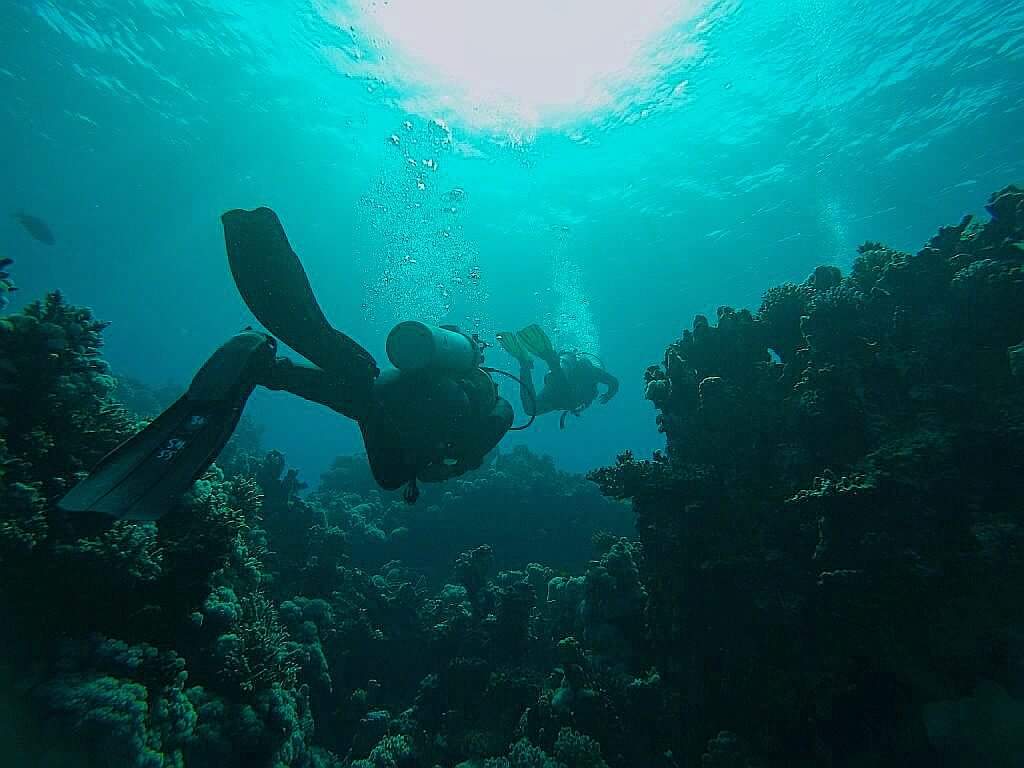
Safety Tips for Scuba Diving
Proper Buoyancy Control
As you prepare to embark on your underwater adventures, one of the most crucial skills to master is buoyancy control. Imagine gliding effortlessly through the water, feeling weightless—this is the beauty of having perfect buoyancy. Here are some tips to enhance your buoyancy control:
- Balance Your Equipment: Make sure your gear is properly configured. A well-fitting BC (Buoyancy Control Device) is key to staying neutral in the water.
- Slow, Controlled Movements: Avoid sudden movements that can cause you to kick up sediment or lose control of your position.
- Use Breathing Techniques: Inhale deeply to ascend and exhale slowly to descend. This simple technique helps you manage your buoyancy effectively.
A novice diver might feel overwhelmed at first, but with practice, buoyancy control can become second nature, allowing you to enjoy the underwater beauty more freely.
Dive Planning and Communication
Before you set off into the depths, effective dive planning is essential for safety and enjoyment. Here’s how you can ensure a well-organized dive:
- Buddy System: Never dive alone. Always go with a buddy to promote safety and fun.
- Discuss Dive Objectives: Talk over your dive plan, including maximum depths, time limits, and specific sights to see.
- Have a Communication Plan: Establish signals to convey important messages underwater, such as "ascend" or "OK."
By prioritising proper buoyancy control and effective communication, you’re setting yourself up for a safe and exhilarating diving experience in the mesmerizing waters of the Red Sea!

Benefits of Scuba Diving in the Red Sea
Relaxation and Stress Relief
When you think about the hustle and bustle of daily life, it’s easy to feel overwhelmed. Scuba diving in the Red Sea offers a perfect escape to recharge your mind and body. Imagine descending into the tranquil blue waters, surrounded by the soft glimmer of sunlight filtering down through the surface. This serene environment provides an extraordinary sense of peace. Scuba diving helps to:
- Promote Mindfulness: The underwater world demands your full attention, allowing you to leave worries behind.
- Reduce Cortisol Levels: Being submerged in water can alleviate stress and create a calming effect on the body.
- Connect with Nature: Interacting with marine life and coral reefs fosters a deeper appreciation of our environment.
As you glide through the calm waters, it's hard not to feel your stress dissipating with each breath.
Environmental Conservation Awareness
Beyond the personal benefits, scuba diving also instils a sense of responsibility toward the environment. By witnessing firsthand the beauty of the marine ecosystem, you may feel compelled to protect it. Here are a few ways diving fosters conservation awareness:
- Education: As divers, you learn about marine biodiversity and the threats it faces.
- Participation: Many dive centres offer opportunities for environmental cleanup dives or coral reef restoration projects, allowing you to contribute directly.
- Advocacy: Experiencing the wonders of the Red Sea can inspire you to spread awareness about ocean conservation efforts.
By diving in the Red Sea, you're not only investing in your mental well-being but becoming an advocate for the preservation of this treasured ecosystem. It’s an experience that enriches both the mind and the soul!
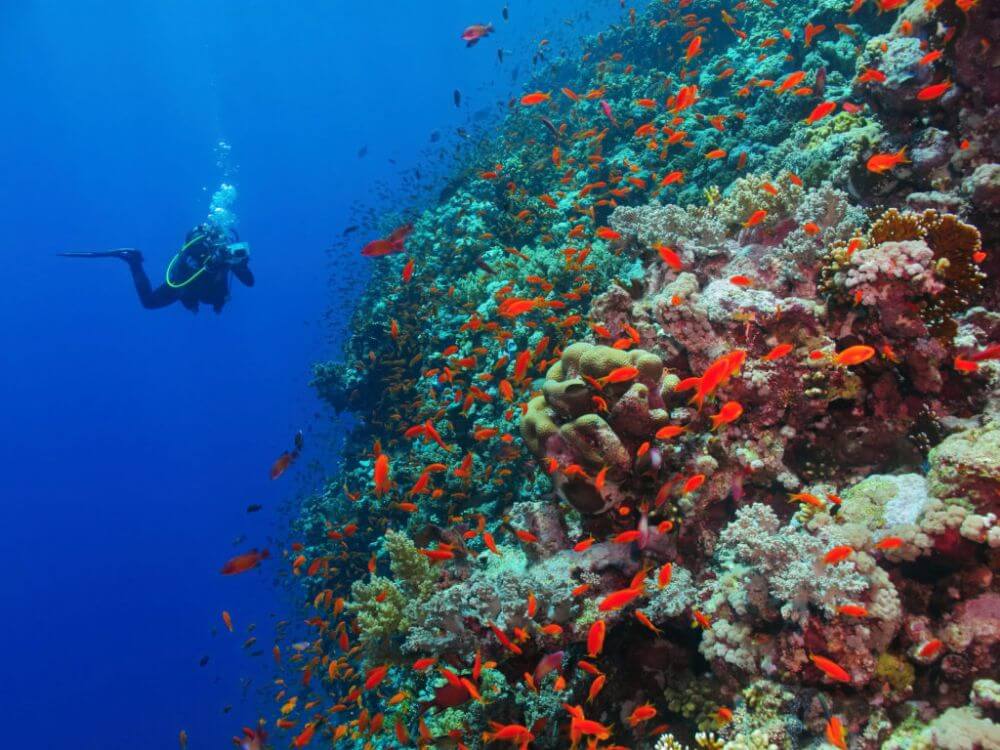
Diving Seasons in the Red Sea
Best Time to Dive
The beauty of diving in the Red Sea is that it offers opportunities year-round, but certain seasons truly stand out. Many divers consider spring and autumn to be the best times to explore this underwater paradise.
- Spring (March to June): During this time, water temperatures are ideal, typically ranging from 24°C to 28°C (75°F to 82°F). Visibility is generally excellent, allowing you to fully appreciate the vibrant coral reefs and marine life. This season also brings an abundance of fish activity, making it exciting for underwater photography.
- Autumn (September to November): This period replicates the splendour of spring, with warm water temperatures and less crowded dive sites as summer tourists depart. Visibility remains high, providing a remarkable diving experience.
Many divers have shared stories of encountering groups of dolphins or witnessing the mesmerizing dance of schools of fish during these peak seasons.
Weather Considerations
While planning your dive trip, keep in mind that local weather can affect your experience.
- Summer (July to August): These months can bring high temperatures, often exceeding 40°C (104°F) on land, but the water remains pleasantly warm. However, visibility might be less consistent due to increased plankton in the water.
- Winter (December to February): Even though temperatures can drop, diving during winter has its advantages, such as fewer crowds and stunning underwater scenery. Just prepare for cooler water temperatures, around 20°C (68°F), by wearing a thicker wetsuit.
Whatever season suits you best, you’re bound to discover the breathtaking beauty of the Red Sea! With these insights, you're ready to embark on your underwater journey, ensuring a memorable and fulfilling diving experience.
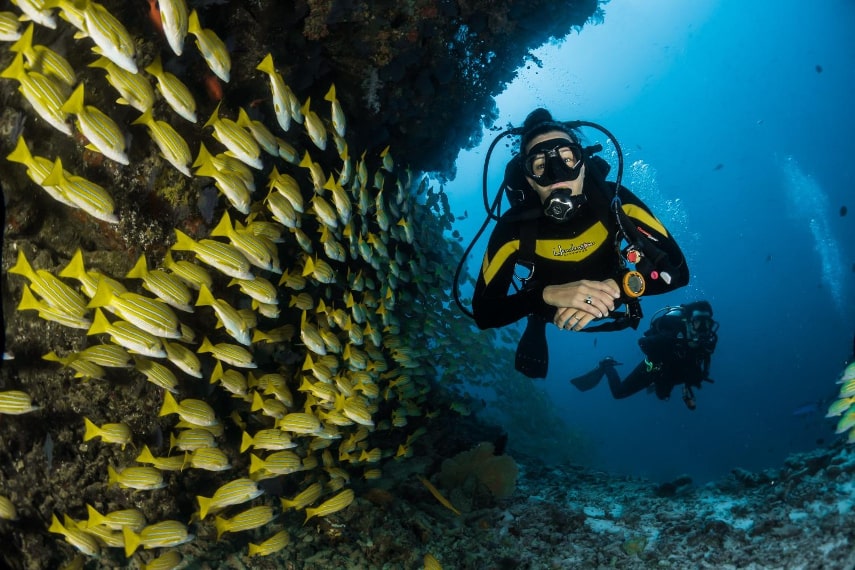
Learning Opportunities for Beginners
PADI Open Water Course
If you’re eager to dive into the world of scuba diving, the PADI Open Water Course is the ultimate starting point. This globally recognised certification opens doors to countless dive sites and experiences. Imagine the thrill of exploring the ocean with confidence, equipped with essential skills!
- Course Structure: The course typically comprises three parts: theory sessions, confined water training, and open water dives. You'll learn about diving physics, equipment usage, and marine conservation.
- Duration: Over a few days, you’ll acquire the knowledge and practical skills necessary to become a certified diver. Most dive centres offer a flexible schedule to accommodate your needs.
- Expert Instructors: Experienced instructors guide you through each phase, ensuring you feel safe and competent.
The sense of achievement after completing the course is exhilarating, allowing you to dive in various marine environments across the globe!
Discover Scuba Diving Experience
If you're still unsure about committing to a certification course, the Discover Scuba Diving experience might be perfect for you. This introductory program lets you explore the underwater realm without the pressure of a full course.
- Short Duration: Typically lasting one day, you’ll receive brief instruction before experiencing a guided dive under the supervision of an instructor.
- No Prior Experience Needed: All you need is a sense of adventure! It's a fantastic way to see if scuba diving is your cup of tea.
- Stunning First Impressions: Many participants report that this experience not only ignites a passion for the ocean but also fosters lasting connections with fellow divers.
These courses are designed to empower beginners and create unforgettable diving memories, making your introduction to the underwater world truly remarkable!
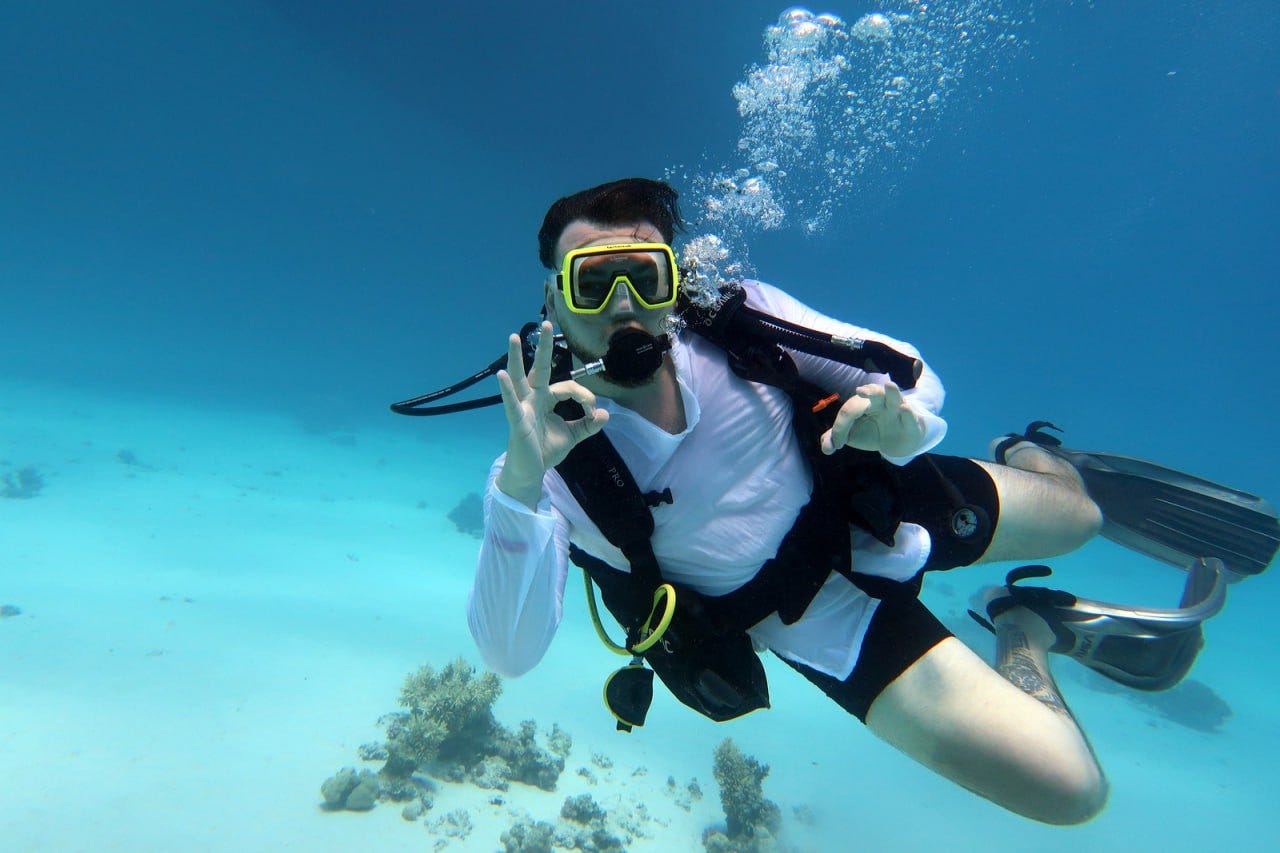
Cultural Highlights Near Dive Sites
Visit to Luxor
After an exhilarating week of diving in the Red Sea, why not take a break from the underwater treasures and head to Luxor? Known as the "world's largest open-air museum," Luxor is a treasure trove of ancient Egyptian history waiting to be explored. Just a short flight or a scenic drive from the Red Sea coast, this destination shouldn't be missed!
- Karnak Temple: One of the largest religious complexes in the world, featuring grand structures and intricate hieroglyphics.
- Valley of the Kings: Explore the final resting places of pharaohs, including Tutankhamun. The rich history here offers a profound connection to the past.
- Hot Air Balloon Rides: For an unforgettable perspective, consider taking a hot air balloon ride over the temples at sunrise—a truly magical experience!
Luxor allows you to immerse yourself in the fascinating culture of ancient Egypt after diving.
Exploring Pyramids in Cairo
No trip to Egypt is complete without visiting the iconic Pyramids of Giza, which are just a few hours away from the bustling capital of Cairo. Standing in the shadow of these magnificent structures can be a humbling experience.
- Great Pyramid of Giza: The last of the Seven Wonders of the Ancient World, it's a sight that must be seen to be believed.
- The Sphinx: This enigmatic creature stands guard over the pyramids, offering countless stories and legends to ponder.
- Cairo Museum: Don’t miss the chance to see artefacts, including the treasures of Tutankhamun and mummies, enriching your understanding of ancient Egyptian civilization.
Whether you choose to explore Luxor or the Pyramids in Cairo, these cultural highlights will beautifully complement your diving adventures, offering a deeper appreciation of Egypt's rich history!
